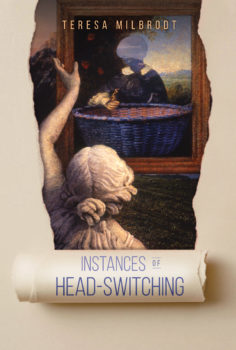
Image credit: VIDA
Recently, I wrote about literary cameos on The Simpsons. In response, Charlotte wondered, “Are they tweaking on the Franzen gender controversy by only having literary cameos by men?”
This is a timely question. A recent study by VIDA: Women in Literary Arts showing that male writers vastly outnumber female writers at many major literary magazines—as writers, reviewers, and review subjects. The New Republic, startled by this disparity, did some number-crunching and found that publishers also publish fewer books by women than men:
In fact, these numbers we found show that the magazines are reviewing female authors in something close to the proportion of books by women published each year. The question now becomes why more books by women are not getting published.
The VIDA numbers provide a start toward an answer: Of the new writing published in Tin House, Granta,and The Paris Review, around one-third of it was by women. For many fiction writers and poets, publishing in these journals is a first step to getting a book contract. Do women submit work to these magazines at a lower rate than men, or are men’s submissions more likely to get accepted? We can’t be sure. But, as Robin Romm writes in Double X, “The gatekeepers of literary culture—at least at magazines—are still primarily male.” If these gatekeepers are showing a gender bias, there’s not much room to make it up later.
In response to VIDA’s study, Peter Strothard, editor of the Times Literary Supplement—which overall published men 2.8 as many times as women—told The Guardian,
I’m not too appalled by our figure, as I’d be very surprised if the authorship of published books was 50/50. […] The TLS is only interested in getting the best reviews of the most important books. Without making a fetish of having 50/50 contributors, we do have a lot of reviewers of both sexes and from all over the world. You have to keep an eye on it but I suspect we have a better story to tell than others.
Here at Fiction Writers Review, we also don’t “make a fetish” of having an even gender balance in our content. We review books that we feel passionate about, and we choose our subjects for interviews and reviews without regard for gender. But how are we doing overall? I did some counting up, and here is the unscientific gender breakdown for content at Fiction Writers Review:
Contributors overall: 85
36 male (42%)
49 female (58%)
Staff:
5 male (45%)
6 female (55%)
Reviews:
126 published as of count date
43 (34%) by male contributors
80 (63%) by female contributors
Note: Percentages do not add to 100% because several “discussion” reviews with multiple authors were not counted.
71 (56%) were of books by male authors/editors
58 (46%) were of books by female authors/editors
Note: Percentages do not add to 100% because several books had more than one editor.
Essays
57 published as of count date
36 (63%) by male contributors
21 (37%) by female contributors
Note: 6 essays were from the “Novel Dishes” series by Kathryn McGowan; 14 were from the “Quotes & Notes” series by Steven Wingate.
Interviews
52 published as of count date
24 (46%) were by male contributors
30 (58%) were by female contributors Note: Several reviews had 2 female interviewers working jointly.
29 (56%) featured male subjects
23 (44%) featured female subjects
Male interviewing male: 17 (33%)
Male interviewing female: 7 (14%)
Female interviewing female: 16 (31%)
Female interviewing male: 12 (23%)
Note: Percentages do not add to 100% due to rounding.
Based on these data, our numbers at Fiction Writers Review are not exactly 50/50, but they’re a damn sight more equal than any of the journals in the VIDA study! We’re proud that, without placing any emphasis on a contributor’s or subject’s gender, our numbers come out to be fairly equitable.
Which raises an interesting question: if lit journals like the Times Literary Supplement are choosing what they feel is the “best” material out there, and we’re also choosing what we feel is the “best” material out there, why is our perception of “best” closer to 50/50, while theirs is so skewed towards male?





